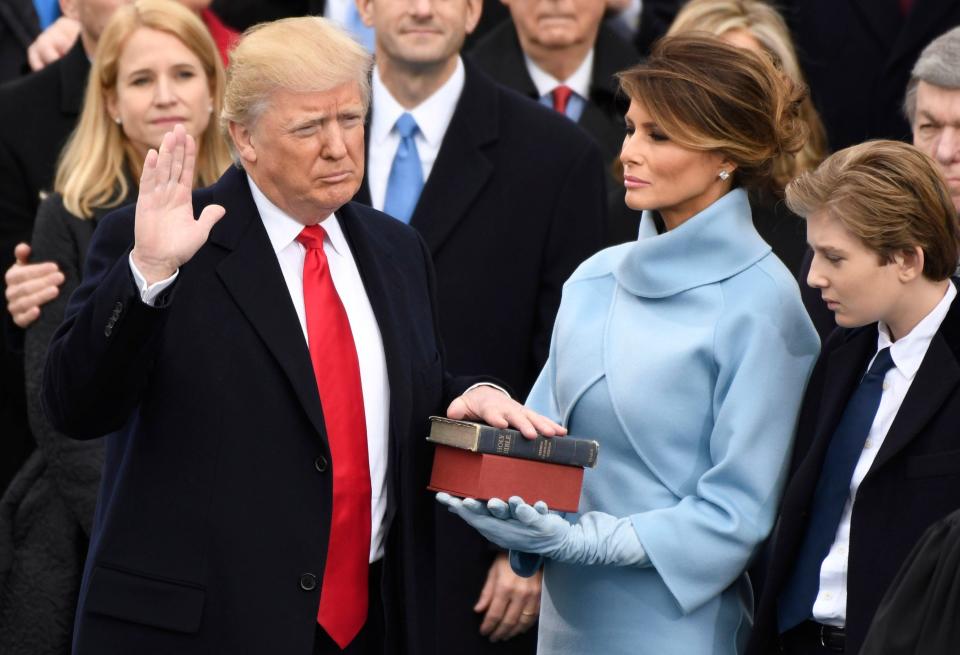No, American presidents are not kings. Here's how the Founder tempered executive power.
Editor's note: This is a regular feature on issues related to the Constitution and civics education written by Paul G. Summers, retired judge and state attorney general.
Our Constitution has guided us since 1789, through success and turmoil, trial and tribulation. We shall continue our study with the second article, Article II of our Constitution.
We call our country the United States of America. Let us keep our constitutional republic strong. That is why we read and study our Constitution, a foundational and supreme law of our United States.
“The executive Power shall be vested in a President of the United States of America.”
He or she is elected for a term of four years, with his/her vice president (VP); and their terms end on Jan. 20 four years later. Not elected by popular vote, they are elected by an Electoral College, as discussed in other columns.
A candidate for president must be “a natural born citizen,” 35 years old, and a resident of the United States for 14 years. The President shall receive compensation for his or her services as the Chief Executive Officer, and the sum shall not be diminished for the period he or she was elected. Further, the President “shall not receive within that period any other Emolument from the United States,” or any state.
Presidents have great power, but it is not absolute
A person elected President shall take the following Oath of Office: “I do solemnly swear (or affirm) that I will faithfully execute the Office of President of the United States, and will to the best of my Ability, preserve, protect and defend the Constitution of the United States.”

Section 2 of Article II provides that the President is Commander in Chief of the military of the United States, “and of the Militia (National Guard) of the several States, when called into the actual Service of the United States....”
The president presides over the Cabinet and can call on the various secretaries, or principals of their departments, “upon any Subject relating to the Duties of their respective Offices....” Further, the president “... shall have Power to grant Reprieves and Pardons for Offenses against the United States (federal crimes), except in Cases of Impeachment.”
The impeachment process is not the same as a federal criminal trial.
The president has the “... Power, by and with the Advice and Consent of the Senate, to make Treaties, provided (2/3) of the Senators present concur ...”
With the advice and consent of the Senate, the president shall appoint ambassadors, public ministers and consuls, Supreme Court justices, “...and all other Officers of the United States, whose Appointments are not herein provided for, and which shall be established by Law....”
As to subordinate officers, the Congress may vest that authority in the president alone, the courts, or the department heads.
Should a vacancy requiring Senate approval occur during the recess of the Senate, the president may appoint to fill the vacancy, “... by granting Commissions which shall expire at the End of their next Session.”
U.S. form of government is a constitutional republic by design
Our Founding Fathers did not want a monarchy.
Operative since 1789, our Constitution provides a constitutional republic. Accordingly, our Founders limited the president's powers to those specified by the Constitution or laws passed by Congress. Actions outside the scope of the Constitution or law are not permissible.
Similarly, the president may not engage in acts of war or bind the United States to international agreements without approval by Congress.
Read and study the Constitution. It is time well spent.
Paul G. Summers, a lawyer, is a former appellate and senior judge, district attorney general, and the attorney general of Tennessee. Raised in Fayette County, Judge Summers resides in Nashville and Holladay.
This article originally appeared on Nashville Tennessean: America's Founding Fathers did not want the president to be a king

